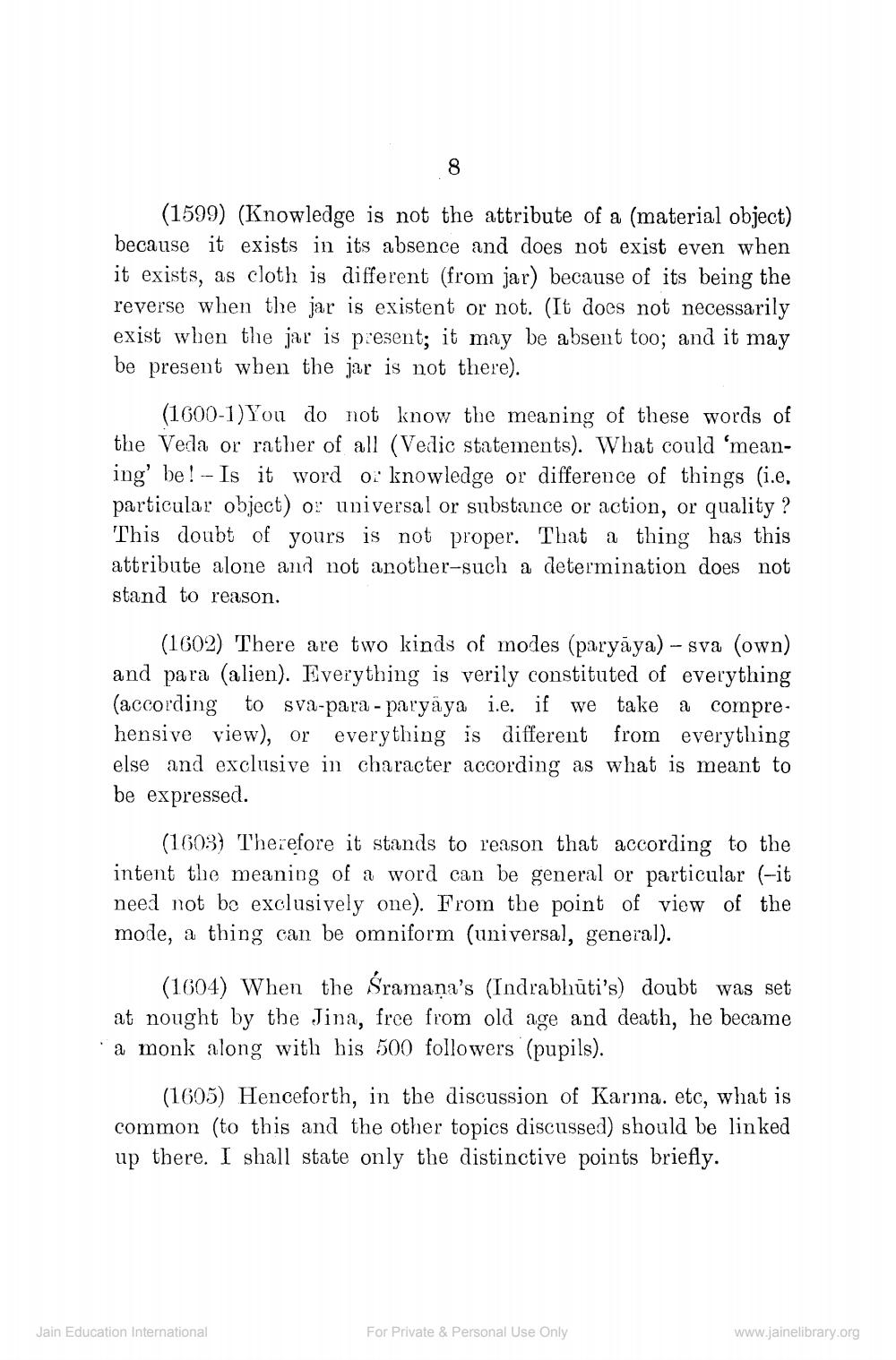________________
(1599) (Knowledge is not the attribute of a (material object) because it exists in its absence and does not exist even when it exists, as cloth is different (from jar) because of its being the reverse when the jar is existent or not. (It does not necessarily exist when the jar is present; it may be absent too; and it may be present when the jar is not there).
(1600-1)You do not know the meaning of these words of the Veda or rather of all (Vedic statements). What could 'meaning' be! - Is it word or knowledge or difference of things i.e. particular object) or universal or substance or action, or quality ? This doubt of yours is not proper. That a thing has this attribute alone and not another-such a determination does not stand to reason.
(1602) There are two kinds of modes (paryāya) - sva (own) and para (alien). Everything is verily constituted of everything (according to sva-para - paryaya i.e. if we take a compre. hensive view), or everything is different from everything else and exclusive in character according as what is meant to be expressed.
(1603) Therefore it stands to reason that according to the intent the meaning of a word can be general or particular (-it need not be exclusively one). From the point of view of the mode, a thing can be omniform (universal, general).
(1604) When the Śramaņa's (Indrabhūti's) doubt was set at nought by the Jina, free from old age and death, he became a monk along with his 500 followers (pupils).
(1605) Henceforth, in the discussion of Karina. etc, what is common (to this and the other topics discussed) should be linked up there. I shall state only the distinctive points briefly.
Jain Education International
For Private & Personal Use Only
www.jainelibrary.org




